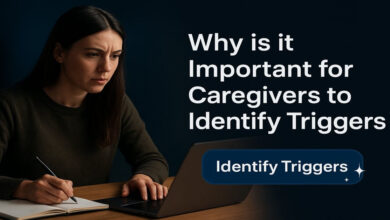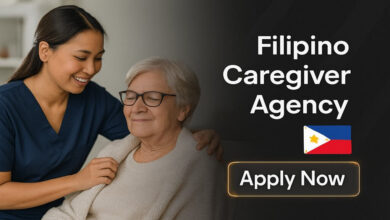
Caregiver Certification Test – Check Here
Dementia represents one of the most significant challenges in modern healthcare, requiring not only clinical expertise but deep compassion and understanding. At the core of delivering exceptional dementia care are rigorous caregiver certification requirements, which ensure that those entrusted with caring for individuals living with Alzheimer’s and related dementias possess both the knowledge and empathy essential for high-quality support.
Families and healthcare systems alike gain confidence knowing that caregivers have been properly prepared to navigate the unique complexities of dementia care.
The National Council of Certified Dementia Practitioners (NCCDP) plays a pivotal role in setting these professional standards. Through comprehensive certification programs such as the Certified Dementia Practitioner (CDP) credential, the NCCDP equips healthcare professionals with in-depth knowledge and practical skills, empowering them to provide effective, compassionate care for individuals with dementia.
Caregiver Certification Practice Test:
Passing your caregiver certification exam is crucial if you want to work professionally in healthcare or social care settings. Here’s why practice tests help:
- Boost Confidence – Familiarize yourself with the exam format and question style.
- Identify Weak Areas – Discover topics where you need more study time.
- Improve Time Management – Practice answering questions under timed conditions.
- Reduce Exam Anxiety – The more you practice, the more relaxed you’ll feel on test day.
Check Also: Caregiver Alert Monitor – Complete Guide
Minimum Age and Education Requirements:
The minimum age to become a caregiver varies across states, though the majority set the requirement at 18 years old. A few states permit individuals as young as 16 to work in certain caregiving roles, but this is less common.
In terms of education, most caregiver roles require at least a high school diploma or equivalent. This ensures candidates have fundamental skills in reading, writing, and basic math—skills crucial for understanding care plans, administering medications, and documenting patient records accurately. While higher education may be beneficial for some advanced roles, a high school diploma remains the standard starting point.
Meeting these age and education standards is critical because caregiving demands a high level of maturity, emotional stability, and the ability to handle sensitive, often challenging situations involving vulnerable individuals.
Completion of Caregiver Training Programs:
Completing a caregiver training program is a key step toward certification. These programs provide essential instruction in core caregiving skills and patient safety practices. Topics often include:
- Basic first aid and emergency response
- Understanding and implementing healthcare plans
- Medication administration and management
- Recognizing and addressing emotional and psychological needs
- Effective communication and interpersonal skills
- Ethical and legal considerations in caregiving
Training programs also prepare caregivers for real-world challenges, including handling emergencies, respecting patient rights, and managing difficult behaviors. Upon successful completion, participants typically receive a certificate confirming they’ve attained the competencies necessary for professional caregiving.
Passing State-Mandated Competency Examinations:
After completing a caregiver training program, aspiring caregivers must pass a state-mandated competency examination. These exams are designed to assess a candidate’s readiness to provide safe and effective care.
Exam content generally covers a broad range of topics, including:
- Personal care techniques
- Emergency procedures
- Infection control
- Ethical and legal responsibilities
- Record-keeping and documentation
Each state administers its own exam process, so it’s crucial for prospective caregivers to familiarize themselves with the specific requirements in their region. Passing this exam is essential to earning formal certification and beginning a professional caregiving career.
Background Check and Fingerprint Clearance:
Given the sensitive nature of caregiving, ensuring patient safety and trust is paramount. Therefore, candidates must undergo thorough background checks and fingerprinting.
These screenings verify an applicant’s identity and criminal history, helping employers ensure that only individuals with clean records and strong ethical standards enter the profession.
Typically, candidates submit fingerprints electronically, which are then reviewed by state justice departments. This process helps maintain the highest standards of safety and builds trust between caregivers, patients, and families.
Basic Life Support (BLS) and First Aid Certification:
Emergencies can arise unexpectedly in caregiving settings, making training in Basic Life Support (BLS) and First Aid indispensable.
These certifications provide practical skills for handling critical situations, including:
- Responding to breathing or cardiac emergencies
- Treating injuries and wounds
- Managing sudden illnesses until professional medical help arrives
BLS and First Aid training often involve hands-on workshops and simulations, ensuring caregivers are prepared to act confidently and effectively when seconds matter.
Health Screening and Immunization Requirements:
Caregivers frequently work with vulnerable populations such as older adults, individuals with chronic illnesses, or immunocompromised patients. To safeguard the health of both caregivers and clients, many employers require:
- Regular health screenings (e.g., tuberculosis testing)
- Up-to-date immunizations, including influenza, measles, mumps, rubella, and varicella
Maintaining these health records is typically mandatory for employment and ongoing work in healthcare settings, ensuring a safe environment for everyone involved.
Continuing Education for Caregivers:
The field of caregiving—especially dementia care—is constantly evolving. Continuing education is therefore essential to maintaining high standards of care and keeping up with the latest best practices.
Ongoing training programs often cover topics such as:
- Advances in dementia research and treatment
- Strategies for managing challenging behaviors
- Mental health awareness
- Palliative and end-of-life care
- Nutrition and wellness for older adults
By participating in continuing education, caregivers not only enhance their skills but also contribute to improved outcomes and a higher quality of life for the individuals in their care.
Join the Ranks of Certified Dementia Practitioners:
Raising the standards of dementia care requires accessible, high-quality training for caregivers nationwide. Organizations like the NCCDP are committed to expanding access to dementia education, ensuring that healthcare professionals across all regions can achieve certification and deliver consistent, expert-level care.
This inclusive approach empowers caregivers with the latest knowledge and techniques, ultimately improving the quality of life for individuals living with dementia and offering peace of mind to their families. Becoming a Certified Dementia Practitioner is a powerful step toward excellence in a field where skilled, compassionate care makes all the difference.
Frequently Asked Questions:
Is the caregiver certification test difficult?
Most people find it manageable with proper study and practice. The test often uses multiple-choice or short-answer questions to check your understanding of practical caregiving skills and knowledge.
Do I need a certification to work as a caregiver?
It depends on the country or state. Some places require certification (like the Care Certificate in the UK or CNA certification in the US), while others allow you to work without formal certification, especially in private home care roles. However, having certification can improve job prospects and salary potential.
What is a Caregiver Certification Test?
A Caregiver Certification Test is an exam that evaluates your knowledge and skills in caregiving, including personal care, safety, communication, and patient rights. Passing this test may be required to work legally as a professional caregiver in many regions.




